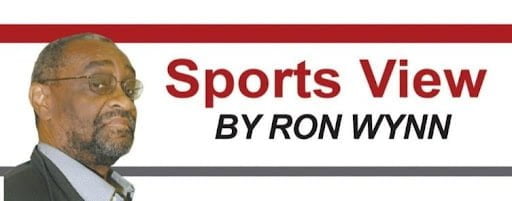
HBCUs in general, and their head coaches in particular, seldom find themselves the targets of attacks from their Power 5 peers. These teams don’t play each other except for those times when big schools schedule games against HBCUs because they view them as easy wins. In turn, the HBCU squads need the lucrative paydays that often can be the difference between a profitable season and a fiscally grim one.
But Jackson State’s Deion Sanders found himself negatively mentioned last week in an epic rant from Alabama head coach Nick Saban, college football’s biggest figure, and until last week a colleague Sanders had done AFLAC commercials with and seemed to have a good relationship. Sanders found himself accused of buying players along with Texas A&M’s head coach Jimbo Fisher, someone who used to work directly with Saban.
Saban claimed Sanders had paid top football recruit Travis Hunter $1 million to attend Jackson State. He also cited Kevin Coleman, but then shifted to the real target of his attack, Fisher, whom he claimed had personally bought every member of his 2022 recruiting class with NIL (name, image, likeness) money. A&M’s 2022 recruiting class is ranked first, Alabama’s second.
Now in reality, most observers recognize it was Fisher, an SEC rival, whom Saban was really attacking. College football writers from USA Today and Sports Illustrated didn’t even reference Sanders when discussing the incident because they know Jackson State isn’t on Alabama’s schedule, nor is a top tier Power 5 school.
However the fact Saban DID mention them is an indicator he views Deion Sanders and HBCUs as possible long-term threats to his program’s success. If Sanders or other HBCUs suddenly begin to convince top Black athletes it’s to their advantage to attend HBCUs again rather than flock to SEC, Big 10, Pac-10 or Big 12 universities, the balance of power in college football could shift in a hurry.
That’s hardly likely to happen. While one or two high profile Black athletes may choose HBCUs, the Power 5 football and big basketball schools have huge recruiting advantages. Their lucrative network of continual television appearances, booster-fueled financial support and now enhanced NIL opportunities tower over what any HBCU can offer. However, as Sanders smartly pointed out, that didn’t stop Saban from including him and Jackson State in his complaint.
“Coach Saban used me and used Jimbo Fisher as pawns in his plea for help from his boosters and his donors,” Sanders told USA Today in his response. He added Saban had cited him because his team was able to recruit some fine players like Kevin Coleman and Travis Hunter last year. Sanders later spurned Saban’s attempt at a private apology, saying whatever they needed to say to each other should be public, since the initial attack was public.
It was no accident that Saban made these comments during a news conference with local business leaders in Birmingham last week. It wasn’t a subtle approach. He was telling them increase their contributions if they wanted to continue having a top program. Fisher offered some comments that got SEC Commissioner Greg Sankey, who issued public reprimands to both coaches, involved in the fray.
“Some people think they’re God. Go dig into how God did his deal. You may find out about a lot of things you don’t want to know,” Fisher said. “We built him up to be the czar of football.”
Now THAT is the stuff neither Sankey, nor Saban or for that matter Fisher, really want brought out into the open. Right now, there are no NIL rules. Until some form of regulation is enacted, it will be every school for themselves environment. But no one should think HBCUs are operating like their Power 5 and bigtime basketball school peers. They don’t have the resources, established networks or broadcasting outlet support systems, and for Saban to imply they do is the worst kind of inaccuracy and hypocrisy.

